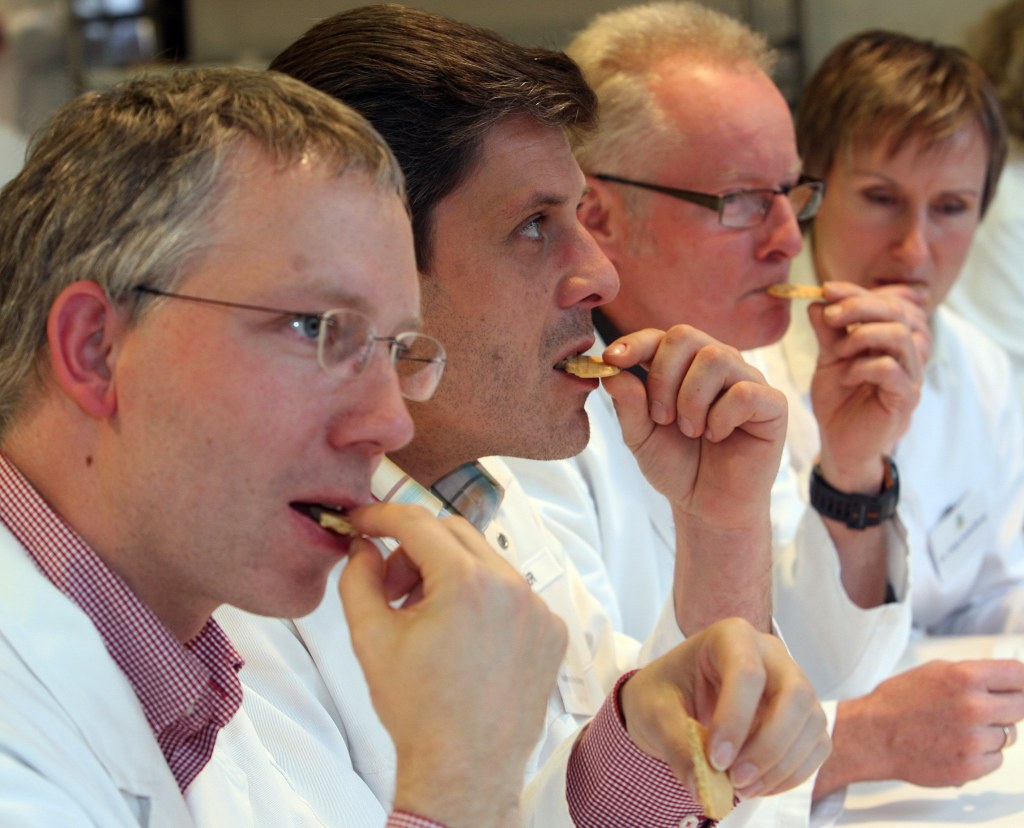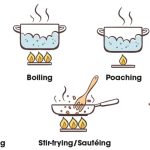Unlocking The Secrets: Essential Food Taster Education Requirements – Discover Your Path To Culinary Excellence Now!
Food Taster Education Requirements: Exploring the Path to Becoming a Professional Food Taster
Introduction:
Hello, Readers! Today, we will delve into the intriguing world of food tasters and explore the education requirements to pursue a career in this delectable profession. Food tasters are highly skilled individuals who play a crucial role in ensuring the quality and safety of the food we consume. In this article, we will discuss the necessary education and skills needed to become a professional food taster. So, let’s embark on this flavorful journey together!
1 Picture Gallery: Unlocking The Secrets: Essential Food Taster Education Requirements – Discover Your Path To Culinary Excellence Now!

Table of Contents
What are Food Taster Education Requirements?
Who Can Pursue a Career as a Food Taster?
When Should You Start Preparing for a Food Taster Career?
Where Can You Obtain the Required Education?
Why is Education Important for Food Tasters?
How to Meet the Education Requirements for Food Tasters?
Advantages and Disadvantages of Food Taster Education Requirements
Frequently Asked Questions (FAQ)
Conclusion
Final Remarks
What are Food Taster Education Requirements?
Image Source: cloudinary.com
📚 Food taster education requirements refer to the qualifications and knowledge that individuals need to acquire to pursue a career as a professional food taster. These requirements typically include a combination of formal education, specialized training, and hands-on experience in the culinary industry.
📚 To become a food taster, aspiring individuals often need to have a solid understanding of food science, sensory evaluation, and culinary arts. This knowledge enables them to assess the taste, texture, aroma, and overall quality of various food products.
📚 Additionally, food tasters need to possess excellent communication skills, attention to detail, and the ability to provide objective and unbiased feedback. These qualities are essential for effectively communicating their findings to food producers and manufacturers.

Image Source: hswstatic.com
📚 The specific educational requirements for food tasters may vary depending on the industry and employer. However, a combination of formal education and practical experience is typically required to excel in this profession.
📚 Now, let’s explore who can pursue a career as a food taster.
Who Can Pursue a Career as a Food Taster?
👩🍳👨🍳 Anyone with a passion for food, a keen sense of taste, and a desire to contribute to the food industry can pursue a career as a food taster. This profession is open to individuals from diverse backgrounds and educational levels.
👩🍳👨🍳 Whether you have a culinary degree, a background in food science, or simply an exceptional palate, there are opportunities available for aspiring food tasters.
👩🍳👨🍳 Food tasters can work in various industries, including food manufacturing companies, restaurants, research institutions, and regulatory agencies. The demand for skilled food tasters continues to grow as the food industry prioritizes quality control and consumer satisfaction.
👩🍳👨🍳 Now that we know who can pursue a career as a food taster, let’s understand when you should start preparing for this exciting profession.
When Should You Start Preparing for a Food Taster Career?
🕒 The earlier you start preparing for a food taster career, the better. While there is no fixed age or timeline for becoming a food taster, it is crucial to lay a strong foundation of knowledge and skills in the culinary arts and food sciences at an early stage.
🕒 High school students who aspire to become food tasters can start by taking relevant courses such as chemistry, biology, and home economics. These subjects provide essential knowledge in food science and preparation techniques.
🕒 Pursuing a bachelor’s degree in fields such as food science, nutrition, culinary arts, or hospitality management can further enhance your qualifications as a food taster. These programs offer in-depth knowledge in food safety, sensory evaluation, and quality control.
🕒 Additionally, gaining practical experience through internships, apprenticeships, or part-time jobs in the culinary industry can provide valuable exposure and hands-on training. It allows aspiring food tasters to develop their sensory evaluation skills and gain insights into the inner workings of the food industry.
🕒 Now that we understand when to start preparing for a food taster career, let’s explore where you can obtain the required education.
Where Can You Obtain the Required Education?
🎓 The required education for food tasters can be obtained through various educational institutions, including universities, culinary schools, and vocational training centers.
🎓 Many universities offer undergraduate programs in food science, nutrition, and culinary arts. These programs provide a comprehensive understanding of food chemistry, microbiology, sensory analysis, and culinary techniques.
🎓 Culinary schools are another excellent option for aspiring food tasters. These institutions specialize in culinary education and offer programs ranging from certificate courses to bachelor’s degrees. Culinary schools often provide practical training in sensory evaluation, food styling, and menu development.
🎓 Vocational training centers and community colleges also offer courses and certifications in food science and culinary arts. These programs are designed to provide practical skills and industry-specific knowledge for individuals looking to enter the food industry.
🎓 It is essential to research and choose an educational institution that aligns with your career goals and offers a curriculum tailored to the requirements of food tasters.
🎓 Now that we know where to obtain the required education, let’s discuss why education is crucial for food tasters.
Why is Education Important for Food Tasters?
🎓 Education plays a vital role in shaping individuals into competent and knowledgeable food tasters. The importance of education for food tasters can be highlighted through the following points:
🎓 In-depth Knowledge: Education provides a solid foundation of theoretical knowledge in food science, sensory evaluation, and culinary arts. This knowledge allows food tasters to make informed judgments based on scientific principles and industry standards.
🎓 Skill Development: Education equips food tasters with essential skills such as sensory analysis, palate training, and food safety practices. These skills are crucial for accurately assessing the quality, flavor, and safety of food products.
🎓 Professional Credibility: A formal education in food science or culinary arts adds credibility to a food taster’s profile. It demonstrates a commitment to continuous learning and professional development, which is highly valued by employers in the food industry.
🎓 Networking Opportunities: Educational institutions provide a platform for aspiring food tasters to connect with industry professionals, researchers, and fellow students. Networking plays a crucial role in career growth and opens doors to employment opportunities and mentorship.
🎓 Adaptability and Innovation: Education enables food tasters to stay updated with the latest advancements in the food industry. It fosters adaptability and encourages innovative approaches to sensory evaluation and quality control.
🎓 Now that we understand the importance of education for food tasters, let’s explore how to meet the education requirements for this profession.
How to Meet the Education Requirements for Food Tasters?
📖 Meeting the education requirements for food tasters involves a combination of formal education, practical experience, and continuous learning. Here are some steps you can take to meet these requirements:
📖 Research: Start by researching the specific educational qualifications preferred by employers in the food industry. Look for programs or courses that offer a comprehensive curriculum covering food science, sensory evaluation, and culinary arts.
📖 Choose an Educational Institution: Select an educational institution that offers the desired program and has a strong reputation in the field. Consider factors such as faculty expertise, industry connections, and available resources.
📖 Explore Internship Opportunities: Seek out internships or apprenticeships in food-related companies or research institutions. These opportunities provide hands-on experience and help develop practical skills in sensory evaluation and quality control.
📖 Attend Workshops and Seminars: Participate in workshops, seminars, and conferences related to food science, sensory evaluation, and quality assurance. These events offer valuable insights, networking opportunities, and exposure to industry trends.
📖 Pursue Continuous Learning: Food tasters should prioritize continuous learning to stay updated with emerging trends and technologies in the food industry. This can be achieved through online courses, certifications, and professional memberships.
📖 By following these steps, you can meet the education requirements and embark on a successful career as a food taster.
Advantages and Disadvantages of Food Taster Education Requirements
Advantages:
✅ Enhanced Expertise: Education equips food tasters with a deeper understanding of food science, sensory evaluation, and culinary arts, allowing them to provide more accurate assessments.
✅ Professional Growth: Meeting the education requirements opens doors to career advancement opportunities and higher positions within the food industry.
✅ Industry Recognition: Employers value candidates with formal education, as it demonstrates a commitment to professionalism and continuous learning.
Disadvantages:
❌ Time and Financial Investment: Pursuing a formal education can be time-consuming and expensive, requiring dedication and financial resources.
❌ Limited Practical Experience: While education is essential, hands-on experience is equally valuable. Education alone may not provide the practical skills and insights required to excel as a food taster.
❌ Evolving Industry Standards: The food industry is constantly evolving, and education may not always keep up with the latest trends and technologies. Continuous learning and staying updated are necessary to remain competitive.
❌ Availability of Resources: Depending on the location, access to quality educational institutions and resources may be limited, making it challenging to meet the education requirements.
Frequently Asked Questions (FAQ)
1. Can anyone become a food taster without formal education?
Yes, it is possible to become a food taster without formal education. However, having a formal education in food science or culinary arts can significantly enhance your chances of success in this profession. Education provides a strong foundation of knowledge and skills necessary for effective sensory evaluation and quality control.
2. Is a culinary degree necessary to become a food taster?
No, a culinary degree is not a mandatory requirement to become a food taster. However, a culinary degree can provide valuable insights into food preparation techniques and flavor profiles, which can enhance your ability to evaluate food products. It is one of the paths you can take to meet the education requirements for this profession.
3. How can I develop my palate for food tasting?
Developing your palate for food tasting requires practice and exposure to a variety of flavors and ingredients. Start by tasting different foods and paying attention to their taste, texture, and aroma. Engage in sensory exercises, such as blind taste tests, to train your palate and improve your ability to discern flavors accurately.
4. Are there any certifications for food tasters?
Yes, several organizations offer certifications in sensory evaluation and food tasting. These certifications validate your expertise in sensory analysis and can enhance your professional credibility. Examples of certifications include Certified Sensory Professional (CSP) and Certified Food Scientist (CFS).
5. What skills are essential for a food taster?
Essential skills for a food taster include a keen sense of taste and smell, attention to detail, strong communication skills, and the ability to provide objective feedback. Additionally, skills in sensory analysis, food safety, and culinary arts are highly valuable in this profession.
Conclusion
In conclusion, a career as a food taster offers an exciting opportunity to combine a passion for food with a valuable role in ensuring quality and safety. To pursue this profession, individuals should strive to meet the education requirements, which typically include a solid foundation of knowledge in food science, sensory evaluation, and culinary arts. By obtaining the required education, gaining practical experience, and continuously expanding their knowledge, aspiring food tasters can embark on a fruitful and fulfilling career in the food industry.
Final Remarks
Food taster education requirements are essential for individuals aspiring to become professionals in this field. It is important to remember that while education is crucial, hands-on experience and continuous learning are equally valuable. By combining both, aspiring food tasters can develop the necessary skills, knowledge, and expertise to excel in this unique and flavorful profession.
This post topic: Cooking Techniques


